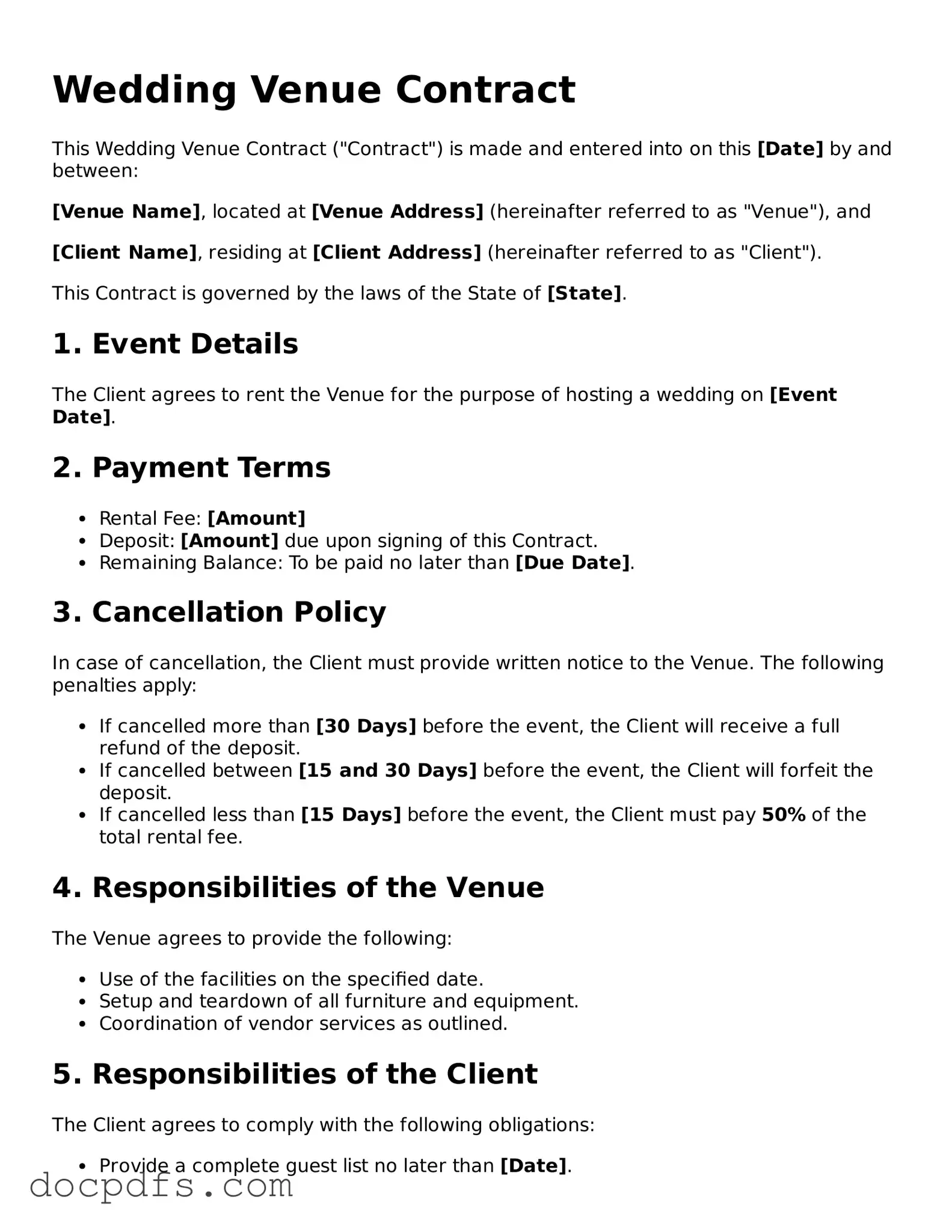Legal Wedding Venue Contract Document
A Wedding Venue Contract is a legally binding agreement between a couple and a venue, outlining the terms and conditions for hosting a wedding event. This document typically includes details about the venue's services, payment terms, and cancellation policies. Understanding this contract is essential for ensuring a smooth and memorable wedding day.
Open Wedding Venue Contract Editor Now

Legal Wedding Venue Contract Document
Open Wedding Venue Contract Editor Now

Open Wedding Venue Contract Editor Now
or
⇓ Wedding Venue Contract
Finish this form the fast way
Complete Wedding Venue Contract online with a smooth editing experience.